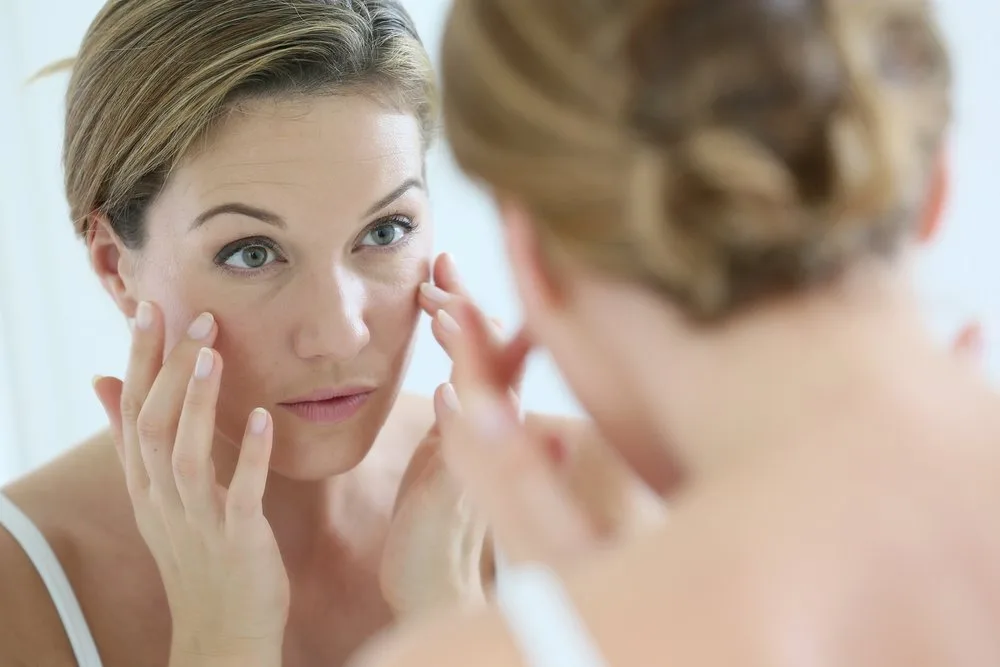Depression is a condition that negatively impacts how you feel, act, or think. Untreated, it could interfere with your ability to carry out normal activities. Mental health conditions can affect a person’s aging process. According to a 2010 study, depression and chronic stress were associated with faster cell deterioration. They were also linked to reduced production of protective and restorative cells(1).
Conversely in some cases, other health-related reasons, including skin disorders, can cause depression and other mental health issues(2). To combat the risk of developing depression from skin problems, some people seek the best skincare solutions available in the market. However, what some believe may be passing or superficial lacklustre, can become more than skin deep.
Depression and Aging
According to a 2018 study on depression, medical researchers observed faster aging in patients with severe depression than patients with no anxiety disorders or lifetime depressive disorders(3).
The authors noted that depressed patients demonstrated higher epigenetic aging in the brain and blood tissues(4).

goodluz/shutterstock
Epigenetic changes refer to reversible alterations in the body. Although these changes do not transform a body’s DNA sequence, they change how the body interprets these strands(5).
A 2018 study suggested that major depression made patients biologically older than their corresponding ages. The authors noted that the effect was more profound in patients who experienced childhood trauma(6).
Studies have shown that major depressive disorders are linked to higher risks of mortality and aging-related diseases. This includes diabetes, cardiovascular disease, cancer, and obesity(7).
Depression and Its Symptoms
Depression has an impact on roughly one out of every six adults. In the US, depression affects approximately 16 million adults every year(8).
Many patients with depression also suffer from other mental health conditions, like anxiety disorders. Patients with anxiety struggle with uncontrollable and intense emotions, including fear, anxiety, worry, and panic(9).
A combination of genetic, environmental, biological, and psychological factors may trigger depression. The factors below increase an individual’s risk of becoming depressed(10):
- Experiencing traumatic events, such as sexual abuse, physical abuse, major financial problems, or the death of a loved one
- Having blood relatives with depression
- Having health problems like cancer or chronic pain
- Taking certain medications, such as anti-anxiety drugs11)
- Going through major changes, like unexpected losses
- Using drugs or alcohol
Major warning signs of depression you should look out for include(12):
-

Stock-Asso/Shutterstock
Feeling tired even after sleeping
- Having difficulty sleeping or staying asleep
- Not having enough energy to do activities, even those that used to be fun
- Feeling sad, anxious, irritable, frustrated, or restless
- Helplessness, guilt, or worthlessness
- Eating more or less than usual
- Lack of appetite
- Experiencing headaches or stomachaches that do not respond to treatment
- Suicidal thoughts
- Excessive sleeping
- Waking up too early
Treating Depression
Depression is treatable with medication and therapy. Treatment can reduce symptoms and shorten how long the condition lasts(13).
Therapy
If you are suffering from depression, psychotherapy or counseling can help. Most therapy sessions last for a short time and aim to help you focus on your feelings, thoughts, and issues.
Through therapy, you can work with your therapist to find solutions. You can also develop and learn the skills you need to cope with life, and change attitudes that are causing problems.
The therapist aims to make you comfortable enough to not feel shy or embarrassed about sharing your feelings and concerns.

Photo by We-Vibe WOW Tech on Unsplash
Here is a list of common therapy goals(14):
- Understanding past painful events
- Creating better relationships with friends and family
- Getting over fears and insecurities
- Quitting smoking, drinking, and drug use
- Determining the factors that worsen depression
- Understanding why something troubles you and formulating a plan to deal with it
- Handling stress better
- Getting healthier
Medication
Taking antidepressants can also improve your mood and coping skills.
If a doctor prescribes antidepressants, you should ask the doctor about proper and safe dosing before taking these drugs.
Let your doctor know if you are already undergoing nicotine replacement therapy or taking other medications that will help you stop smoking.
If you are taking antidepressants for the first time, it may take several tries before finding the best medication and proper dose for you.

Maridav/Shutterstock
When taking antidepressants‚ it is crucial to follow the doctor’s instructions.
Although you may already feel the effects days after starting the medication‚ it can take up to four weeks to experience the full benefits(15).
Antidepressants are effective and safe for most people(16). However, it is important to seek medical advice if you experience side effects.
You should not stop taking medications without first informing your doctor. This sudden change can worsen depression symptoms(17).
Some antidepressants also cause risks for pregnant patients. They should first inform their physician before taking this type of medication.
The lowdown
Depression can become more than skin deep. If you know of anyone having thoughts of suicide or hurting themselves? Seek immediate help. You may take the following steps below:
- Inform your mental health provider.
- Seek help from your physician.
- Contact a close friend or loved one.
- Reach out for a minister or someone you trust in your faith community.
References
- Wolkowitz, O. M., Epel, E. S., Reus, V. I., & Mellon, S. H. (2010). Depression gets old fast: do stress and depression accelerate cell aging? Depression and Anxiety, 27(4), 327–338. doi:10.1002/da.20686
- Dalgard, Florence., Gieler, Uwe., Tomas-Aragones, Lucia., Lien, Lars., Poot Francoise., Jemec, Gregor., Misery, Laurent., Szabo, Csanad., Linder, Dennis., Sampogna, Francesca., Evers, Andrea., Anders Halvorsen, Jon., Balieva, 2 Flora., Szepietowski, Jacek., Romanov, Dmitry., Marron, Servando., Altunay, Ilknur., Finlay, Andrew., Salek, Sam., & Kupfer, Jörg. (2015). The Psychological Burden of Skin Diseases: A Cross-Sectional Multicenter Study among Dermatological Out-Patients in 13 European Countries. The Journal of Investigative Dermatology, 135(4): 984–991. https://www.ncbi.nlm.nih.gov/pmc/articles/PMC4378256/
- Han, Laura., Aghajani, Moji., Clark, Shaunna., Chan, Robin., Hattab, Mohammad., Shabalin, Andrey., Zhao, Min., Kumar, Gaurav., Xie, Lin Ying., Jansen, Rick., Milaneschi, Yuri., Dean, Brian., Aberg, Karolina., Van den Oord, Edwin., & Penninx, Brendan. (2018). Epigenetic Aging in Major Depressive Disorder. The American Journal of Psychiatry. https://ajp.psychiatryonline.org/doi/10.1176/appi.ajp.2018.17060595
- Ibid
- Centers for Disease and Control Prevention. Epigenetics. Retrieved from https://www.cdc.gov/genomics/disease/epigenetics.htm
- L. Han, et al. Op cit.
- Ibid
- CDC. Mental Health Conditions: Depression and Anxiety. Retrieved from https://www.cdc.gov/tobacco/campaign/tips/diseases/depression-anxiety.html
- Ibid
- Ibid
- Harvard Health Publishing. Is your medication making you depressed? Retrieved from https://www.health.harvard.edu/drugs-and-medications/is-your-medication-making-you-depressed
- CDC. Mental Health Conditions: Depression and Anxiety. Op cit.
13- 17 Ibid






![women [longevity live]](https://longevitylive.com/wp-content/uploads/2020/01/photo-of-women-walking-down-the-street-1116984-100x100.jpg)









